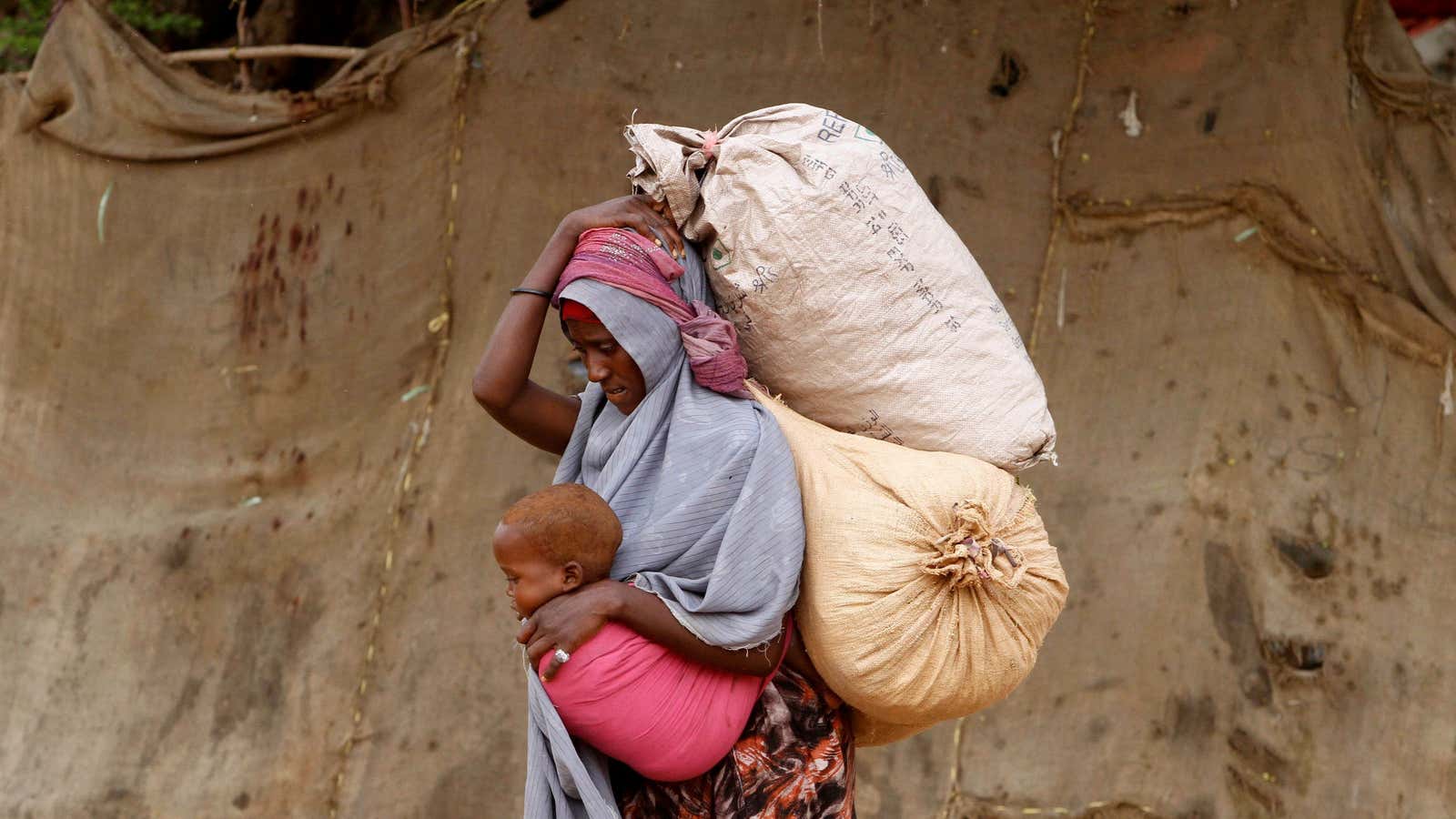Somalia’s terrorist group Al-Shabaab may have no qualms bombing people while they lie on the beach, work in government offices, or shop in busy markets. But the group is trying to brand itself as an eco-friendly outfit with its recent decision to ban single-use plastic bags and cutting down trees.
The directive was announced through several Al-Shabaab supporting media outlets, with the prohibition especially taking place in the southern Jubba regions where the group controls. Somali Memo, a website believed to be run by the group’s media office, noted the ban was put in place (in Somali) since plastic bags “pose a serious threat to the well-being of humans and animals alike.” The group’s radio station, Radio Andalus, also reportedly announced the restrictions.
There was no notification over how the plan would be carried out or the punishment it would merit if someone was caught with plastic bags. In the past, the group has banned playing soccer, watching movies, smoking, and even using the internet.
The decision to ban plastic bags is, however, incongruous with the Al-Qaeda-linked group’s past actions. Much like the poppy trade is for the Taliban in Afghanistan, every year, Al-Shabaab generates millions from the export of charcoal. A 2011 United Nations report noted how the profits from charcoal finances the import of sugar, much of which is smuggled across to Kenya and sold as contraband. The UN has also warned that illegal and unsustainable charcoal production in Somalia has accelerated environmental degradation and fueled the demise of the slow-growing hardwood, Acacia bussei. Without Al-Shabaab being able to export these goods, it would destroy one of its lucrative economic lifelines.
Across Somalia, Al-Shabaab is fighting against the Western-aligned government whose authority is yet to expand into many towns and regions. Last October, the group was accused of carrying out Somalia’s deadliest terror attack ever, killing over 500 people and injuring more than 300 others.
While the plastic ban might be a public relations tactic to improve its image and authority, Al-Shabaab’s diktat also follows in the footsteps of neighboring nations including Rwanda and Kenya. Last year, Kenya banned the use, manufacture, and importation of plastic bags citing harm to both soil and water, marring tourist sites, and clogging sewers and streams. Officials in Nairobi warned offenders would be fined as much as $38,000, or serve up to four years in jail.
